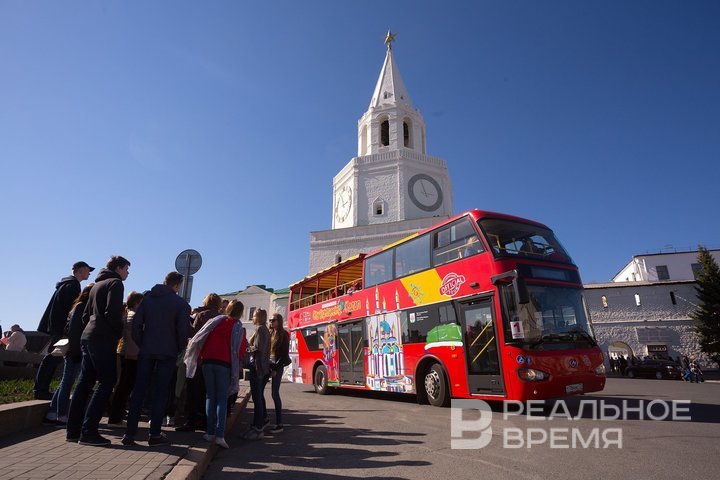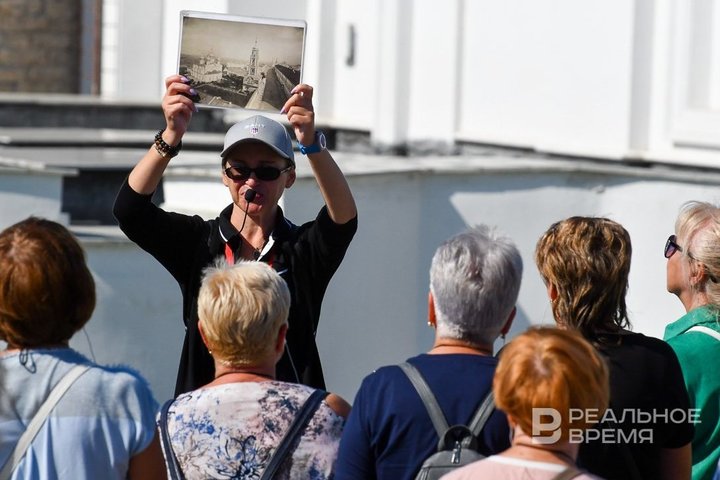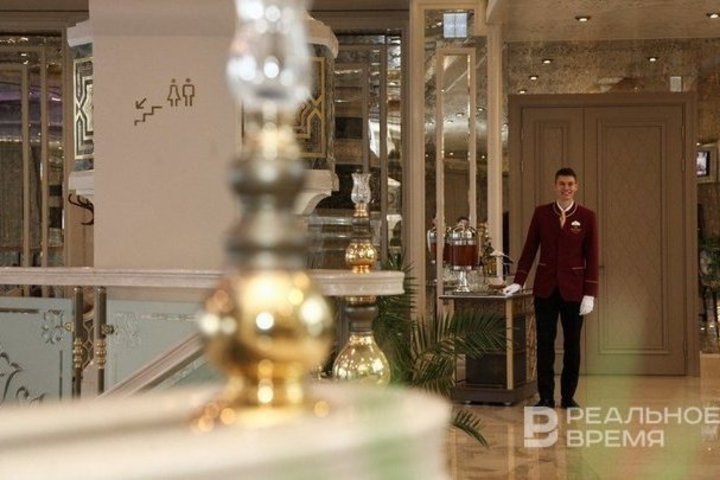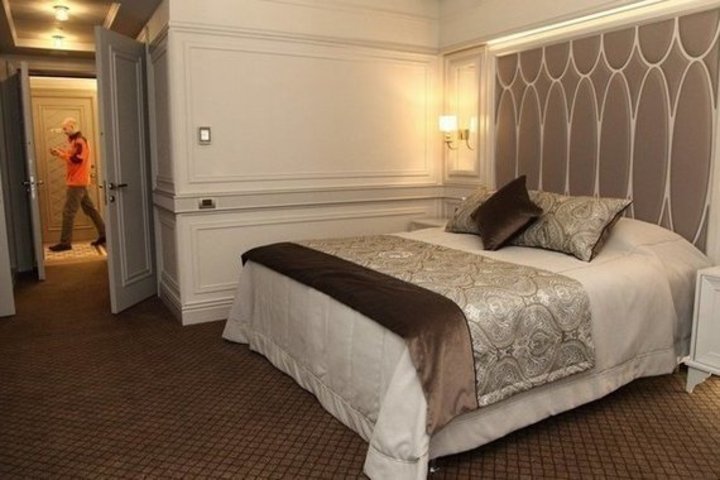‘No one said what good this collection would bring — there is a monument to resort ruble in Zheleznovodsk in front of my eyes’
Hoteliers are ready to pay the tourist tax but they ask for a transparent procedure for distributing money for the industry development

The regions of Russia are discussing the prospect of levying a tourist tax from next year. Unlike the resort fee, the fee will be charged not from a tourist, but from a hotel room, the money will be sent to local budgets to create a tourist infrastructure. Hotel businesses are ready to pay the tax but doubt that municipalities use the funds for their intended purpose. “The money should be spent absolutely transparently, with the involvement of specialised organisations in tourism," hoteliers believe. Read the details in the material of Realnoe Vremya.
“The more money remain in the region and one won't have to travel abroad”
They decided to modify the experiment on resort collection in Russia. Hoteliers will pay the tax instead of tourists, and all regions will have the right to collect it next year. Currently, the resort fee is valid only in the Altai Krai, Krasnodar Krai, and Stavropol Krai, as well as in St. Petersburg, and this year the pilot finishes.
Proposals for the modernisation of the tax are being prepared by the Ministry of Economic Development together with representatives of the hotel industry, the Russian Union of Tourism Industry and the subjects of the country. Officials and experts have agreed that the tourist fee will be a fixed fee — but not from a tourist, as it is now, but from a hotel room. Moreover, whether to introduce a tax or not, as well as what the amount of the tax will be, each region will decide independently.

It is planned that the funds raised will be directed to the budgets of municipalities for targeted use, that is, only for the development of tourist infrastructure and display facilities (creation of public spaces, attractions). In other words, this money should help make any city or region more attractive to visitors. The necessary amendments to the Tax and Budget Code have already been prepared and are currently under consideration by the Ministry of Finance.

“It will be another collection, which hotels already have a lot. I would not like to”
As the authors of the project explain, the object of taxation will be the number of rooms in hotels, and the regions will set the rate themselves. At the same time, the base rate will be about 65 rubles per room per day, that is, 6 thousand rubles per quarter. Besides, all subjects of the country will have the right to apply a reduction coefficient from 0 to 1, depending on the occupancy of hotels. The coefficient can be reset, for example, in winter and raised during the high tourist season in summer.
The tourist tax administration will be dealt by the tax authorities, businesses will not have to take additional actions to report to the Federal Tax Service, the Ministry of Economic Development of the Russian Federation clarified. The tourist tax from a hotel room is levied in many countries, the proposed Russian tax rate is one of the lowest, the initiators of the project assure.

Kazan can earn from 400 to 600 million rubles a year from tourists
Tatarstan has been maintaining the pace of tourism development in recent years and has exceeded the levels of the pre-pandemic years in terms of key indicators. As of January 1, 2023, the tourist flow to the republic reached 3.9 million people, the volume of paid services in this area, taking into account related industries, amounted to 39.5 billion rubles.
In terms of the tourist flow volume, the republic ranks first in the Volga Federal District and seventh in Russia — after Krasnodar Krai, Moscow Oblast and Leningrad Oblast, Moscow, St. Petersburg and Crimea. There are 114 tour operators operating in Tatarstan, which are included in the Unified Federal Register.
The region is ranked among the most developed in terms of hotel infrastructure, 582 collective accommodation facilities with a room stock of 25 323 rooms operate in the republic. The average occupancy rate of hotels is 73%.
Assuming that the tax will not be levied on all rooms, but only on those in which tourists stay, an average of 18.5 thousand rooms (73% of 25.3 thousand rooms) will be taxed. Most likely, the rate for occupied rooms will be valid all year round, so that the budget of Kazan will be able to receive about 440 million rubles a year from this tax. If the entire fund of rooms is taxed, the city will earn even more — over 600 million rubles.

“Money must be spent absolutely transparently”
The resort fee mechanism, which operates in four regions of the country, “was quite labourious for hotels, since a special account was opened," comments Alexey Musakin, the vice president of the Russian Union of Travel Industry, on the initiative to modernise the tax. Large hotels, he said, were forced to “allocate a separate person who would draw up the necessary documents”.
“To apply a discount for a number of categories of citizens, it was necessary to scan all their documents granting such a right. This was a significant enough burden on the staff, especially during peak seasons. Now that the tourist tax is transferred from a person to a hotel, it becomes much easier for us. The mechanism itself is simple and clear," he is convinced.
Nevertheless, Tatarstan hoteliers, who may face this type of taxation for the first time, are puzzled. The procedure for collecting funds is not yet clear, and besides, their intended use raises many questions.
“I agree that it is necessary to collect this tax. But where and how will it be distributed? Of course, they have to figure it out. The amount is small, it will not have much effect, this is a usual phenomenon. When we leave for Krasnodar Krai, we always pay this fee. We have our own hotel at Tatarskaya Usadba. So far, there have been no big problems, and I hope there won't be," said Zufar Gayazov.
In his opinion, it is necessary to distribute tax revenues for the development of tourist infrastructure proportionally: “A lot of things need to be updated. And roads must be constantly repaired, parks and squares maintained. Look at how many good, beautiful parks are being made in the city, it is necessary to take care of them. We need a human resource, and for this we need to pay money to the budget.”
Industry representatives are also concerned that the reform will affect only legal collective accommodation facilities. The gray business with daily rental of housing for tourists will again escape responsibility, and so far few measures are being taken to bring them out of the shadows: “Again, we have a gray sector that no one wants to deal with — issues of illegal renting of apartments for daily rent. If they take information about the number of rooms to calculate the tax, such information is in the register of classified objects. Only white businesses are classified," Alexandra Yushutina said.

Moreover, when the experience of the regions with resort fees, albeit in a new format, is scaled up to the whole country, the practice of penalties can also be extended, following the example of St. Petersburg. In the Northern capital, they are seriously discussing the fine for the refusal of hoteliers to collect a tourist fee. Fines for legal entities up to 100 thousand rubles.
“For some reason, they proceed from that we are all so unscrupulous, and if something new is introduced, then it is necessary to introduce a punitive measure for non-compliance. But so far, no one has said what good this tourist tax will bring to those who were charged with collecting it. Unfortunately, I have only such an example before my eyes: in Zheleznovodsk, a monument to the resort ruble was erected with the money collected from the resort fee. Moreover, the mayor said that, according to a survey, tourists said that 100 rubles per person is not enough, let's charge 200 rubles," Alexandra Yushutina complained.
According to her, to avoid doubts about the targeted use of money from the tourist fee, municipalities need to make the procedure for allocating funds as open as possible and involve representatives of the hotel industry in this issue: “The money should be spent absolutely transparently, with the involvement of specialised organisations in tourism. If the tax is collected from hotels, so that it is possible, for example, to repair the streets in front of hotels, organise additional parking spaces or somehow solve the issues of tourist infrastructure — so that it would be noticeable what it's all about.”